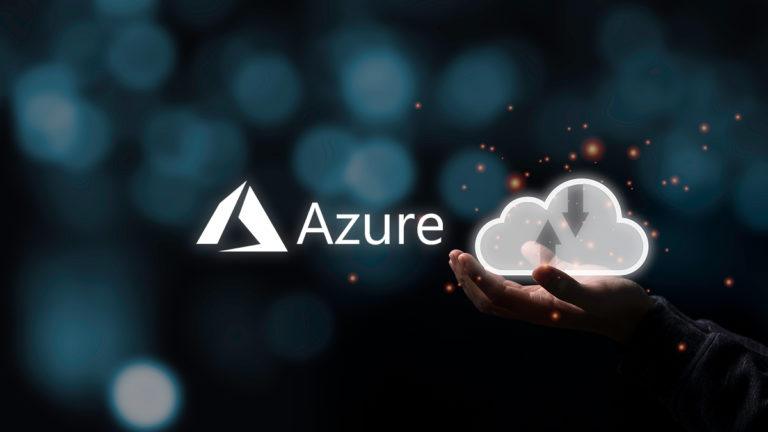A Comprehensive Guide of Microsoft Azure
Introduction In the rapidly evolving landscape of cloud computing, Microsoft Azure stands out as a prominent and versatile platform that empowers businesses and individuals to achieve their goals efficiently. Azure, launched in 2010, has grown into one of the leading cloud service providers, offering a wide array of services to cater to diverse needs. This blog will delve into the intricacies of Microsoft Azure, exploring its key features, benefits, and the impact it has on the world of technology. I. Understanding Microsoft Azure: 1. Overview of Azure: • Azure is a comprehensive cloud computing platform provided by Microsoft, offering Infrastructure as a Service (IaaS), Platform as a Service (PaaS), and Software as a Service (SaaS) solutions. • It operates across a global network of data centers, providing scalability, reliability, and redundancy. 2. Core Components: Compute: Azure Virtual Machines (VMs), Azure Kubernetes Service (AKS), and Azure Functions. Storage: Blob Storage, Table Storage, File Storage, and Disk Storage. Networking: Virtual Network, Azure Load Balancer, and Azure VPN Gateway. Databases: Azure SQL Database, Cosmos DB, and Azure Database for MySQL/PostgreSQL. II. Key Features and Capabilities: 1. Scalability: • Azure’s scalable architecture enables users to dynamically adjust resources based on demand. • Auto-scaling and load balancing features ensure optimal performance even during peak times. 2. Security: • Advanced security features, including Azure Active Directory (AAD) for identity management. • Azure Security Center provides threat protection across workloads. 3. Hybrid Cloud Solutions: • Azure facilitates seamless integration between on-premises data centers and the cloud. • Azure Arc extends Azure services to any infrastructure, including other cloud providers. 4. DevOps Integration: • Azure DevOps services streamline the development, testing, and deployment of applications. • Integration with popular development tools and platforms, such as GitHub. 5. AI and Machine Learning: • Azure offers a suite of AI and machine learning services, including Azure Machine Learning and Cognitive Services. • Enables businesses to build, deploy, and manage AI applications at scale. III. Use Cases and Industry Applications: 1. Enterprise Solutions: • Large enterprises leverage Azure for virtual machines, data storage, and enterprise-level applications. • Azure’s global presence caters to multinational corporations. 2. Startups and SMBs: • Cost-effective solutions for startups and small to medium-sized businesses. • Azure’s pay-as-you-go model allows businesses to scale without significant upfront costs. 3. IoT (Internet of Things): • Azure IoT Hub facilitates seamless communication between devices and the cloud. • Supports the development of scalable and secure IoT solutions. 4. Big Data and Analytics: • Azure provides robust solutions for big data processing and analytics. • Services like Azure Databricks and Azure Synapse Analytics support data-driven decision-making. IV. Recent Developments and Innovations: 1. Azure Quantum: • Microsoft’s quantum computing platform, offering quantum solutions for complex problems. • Integration with Azure services for hybrid solutions. 2. Azure Synapse Link: • Enabling real-time analytics by connecting Azure Synapse Analytics with operational databases. • Simplifies data integration and analysis. 3. Azure Precept: • A comprehensive platform for building AI-powered edge solutions. • Facilitates the development of intelligent edge devices. V. Future Trends and Outlook: 1. Edge Computing: • Continued focus on edge computing solutions for faster data processing. • Integration of Azure services with edge devices for enhanced performance. 2. Enhanced AI and Machine Learning: • Further advancements in AI and machine learning capabilities. • Continued integration with Azure services for seamless AI application development. 3. Sustainability Initiatives: • Azure’s commitment to sustainability with projects like the Microsoft Sustainability Calculator. • Focus on renewable energy and carbon reduction efforts. Conclusion: Microsoft Azure continues to be a driving force in the evolution of cloud computing, providing innovative solutions across industries. Its robust features, security measures, and commitment to sustainability position it as a reliable choice for businesses of all sizes. As technology continues to advance, Azure’s adaptability and continuous innovation are expected to play a pivotal role in shaping the future of cloud computing. Embark on a journey of knowledge and discovery – delve into a treasure trove of insightful blogs at our digital haven. Uncover the latest trends, explore fascinating insights, and ignite your curiosity. Join us in the realm of endless possibilities by visiting: https://smartdata.ae/blogs



